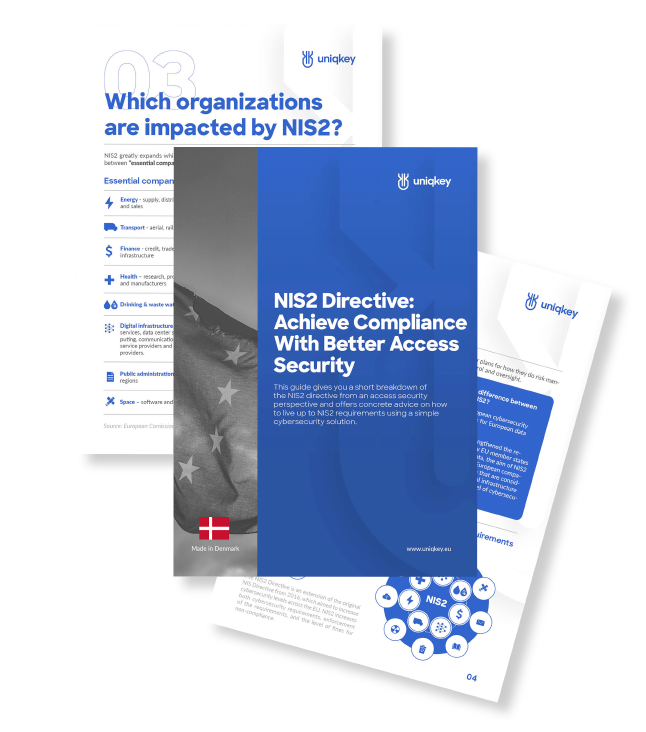IMPORTANT ENTITY
Waste Management Sector
Learn how the NIS2 directive affects organizations in the waste management sector.
The Waste Management Sector
Responsible for maintaining public health, environmental protection, and sustainability, the waste management sector is an essential part of the European economy. With its broad range of activities such as collecting, transporting, treating, and disposing of waste, the sector is vulnerable to cyberattacks that could potentially cause significant disruptions its critical operations.
The waste management industry is one of the new sectors covered by the NIS2 Directive, and will followingly be subject to higher cybersecurity requirements.
Key Cybersecurity Challenges
For The Waste Management Sector
Legacy Systems
Many waste management organizations rely on outdated systems that may be vulnerable to cyber attacks and require significant investment to update.
Supply Chain Security
The waste management sector has a complex supply chain that involves multiple partners, making supply chain attacks a significant challenge.
Third-party Risks
Third-party vendors may not have the same cybersecurity standards as the waste management organization and could create cybersecurity risks.
Employee Awareness
Employee training is critical to recognizing and responding to potential cyber threats, such as suspicious emails or messages, to mitigate cybersecurity risks.
Data Protection
The waste management sector generates personal and sensitive environmental data that must be protected from unauthorized access, theft, or destruction.
Phishing Attacks
Cybercriminals target fraudulent emails or messages to trick waste management employees into disclosing sensitive information or downloading malware.
The Implications of NIS2 For The Waste Management Sector
Like it’s the case for all other affected sectors, the NIS2 Directive is set to have broad implications for the waste management sector. Below, you’ll find some of the most significant implications of NIS2 for the waste management industry.

broader integration of cybersecurity
The NIS2 directive requires waste management organizations to integrate cybersecurity into the entire waste management lifecycle. This means that waste management organizations will need to consider cybersecurity measures at every stage of the waste management process, from waste collection to disposal.
cyber awareness training
Waste management companies will need to allocate resources to develop and implement cybersecurity awareness training programs that are specific to the waste management sector. These programs will need to cover the unique cybersecurity risks associated with waste management operations, such as the handling of hazardous waste and the use of IoT devices.
risk assessment and management
Under the NIS2 directive, waste management organizations will be required to regularly conduct cybersecurity risk assessments and establish measures to mitigate the identified risks. This will entail allocating resources to assess their cybersecurity risks and develop effective measures to address these risks. Given the unique nature of the waste management sector, the risk assessment and management program may require the development of specific cybersecurity measures to protect against potential cyber threats.
IMPACT ON THE waste management MARKET
The implementation of the NIS2 directive will require waste management organizations to adopt a more proactive approach to cybersecurity, which may entail significant changes to existing business models and practices. This could have a significant impact on innovation in the sector, as waste management organizations will need to invest in new technologies and processes to comply with the new regulations. However, the Directive also presents an opportunity for waste management organizations to enhance their cybersecurity and resilience, which can improve public health and environmental safety.
Get NIS2 Complaint (Whitepaper):
Time is running out to comply with NIS2 regulations. Starting your compliance journey sooner rather than later is crucial.
A typical NIS2 compliance process, including security assessments, auditing, consulting, and tool implementation, takes approximately 12 months.
For practical advice on how to comply with the requirements, check out our NIS2 white paper.

